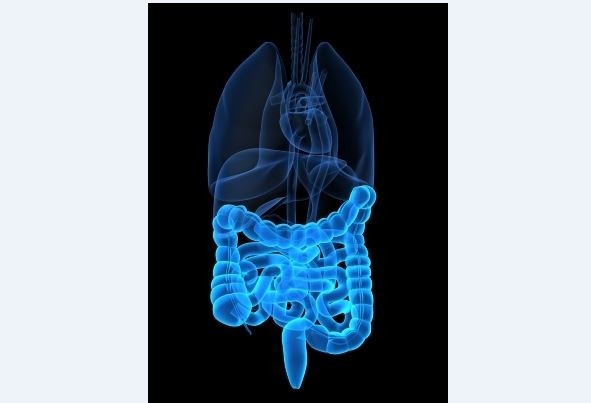‘Largest’ study questions probiotic diarrhoea benefits

The study, published in The Lancet, assessed the potential benefits of probiotic supplementation for the prevention of antibiotic-associated diarrhoea (AAD). in a real-world clinical trial setting after previous research suggested that probiotic preparations – similar to those available in popular probiotic yoghurt drinks – may reduce the incidence of AAD.
"Although some existing studies of the effect of probiotic supplements on AAD have suggested that these supplements might effectively reduce the incidence of AAD, these results were based mostly on small trials conducted in single locations, many of which gave inconsistent results which are difficult to incorporate in meta-analyses," said Professor Stephen Allen from Swansea University in Swansea, UK - who led the study.
Allen and his colleagues randomly assigned almost 3,000 people to receive either a probiotic supplement or placebo for 21 days. However, contrary to previous smaller studies and meta-analysis, the team found no evidence that the multi-strain probiotic preparation (of Lactobacilli and Bifidobacteria) was effective in prevention of AAD or C. difficile induced diarrhoea (CDD).
Allen and his team reported that the probiotic supplement did not appear to reduce the incidence of AAD or CDD - with around 1 in 10 members of both placebo and probiotic groups suffering with AAD.
"Our study is by far the largest trial so far to assess the effects on AAD of so-called probiotics - which might better be termed microbial preparations, given the uncertainty over whether they are indeed beneficial to health - and the results do not support the use of these preparations to reduce rates of AAD in older inpatients," commented Allen.
A recently published Cochrane review analysed the findings of 23 clinical trials, suggesting that probiotics taken in conjunction with antibiotics could reduce the number of people who suffered AAD by up to 64%.
Strain specific
Commenting on the study, Ioannis Misopoulos, director general of the International Probiotics Association (IPA) questioned why the research team chose the specific preparation for use in the trial: "It has no previous documented effect on AAD," Misopoulos told NutraIngredients. "I could find only one study on IBS. Why assume that any random probiotic would aid in AAD?"
"They provide little rationale for their selected strains, other than that it were 2 Lactobacilli and 2 Bifidobacteria."
He noted that the fact that the study is 'null' could be classed as a good thing, given that strains which have never been suggested for AAD benefits did not result in negative findings.
"The preparation did not make AAD worse ... and for once there was a thorough check on adverse events and none could be attributed to the test product. At least the product is documented to be safe."
"The only thing that might warrant a response are the conclusions," said Misopoulos. "Because the tested product did not show a benefit, the conclusion is that they cannot recommend use of probiotics against AAD ... So, the conclusions are a bit too general."
Ross Critenden, VP for R&D at Finnish probiotics player, Valio, added: "It is commendable that such a large, multi-centre, randomized controlled trial of a potentially probiotic intervention was undertaken, as we certainly need more of these."
He added that while it can be concluded that the specific strain combination and dosing was not beneficial, the results highlights a need for improved understanding of mechanisms and strain attributes, "in order to rationally design probiotic preparations and intervention strategies for antibiotic associated diarrhoea."
Research details
Allen and his team recruited nearly 3000 people to the PLACIDE trial. All study participants were hospital inpatients aged 65 or over – the age group for which AAD tends to cause most problems – and had been prescribed one or more antibiotics.
Around half of the study participants were asked to take one capsule containing a fixed dose of live bacteria (two strains of Lactobacillus acidophilus, Bifidobacterium bifidum, and Bifidobacterium lactis) per day for 21 days, and between antibiotic doses where possible. The remaining study participants in the control group received an identical placebo capsule, with the same dosing instruction.
Researchers analysed stool samples from around half of the patients who experienced diarrhoea in order to determine whether their stomach upset had been caused by antibiotics, or by something else. Such analysis also allowed the researchers to track how many participants’ AAD was caused by C.difficile- which previous research has suggested may be responsive to probiotic supplements.
However, Allen and his colleagues found that the frequency and severity of diarrhoea were similar in both groups - with both groups scoring similarly in surveys to assess quality of life during the trial.
Furthermore, they said that the number of people whose diarrhoea was caused by C. difficile was similar in both groups - leading the researchers to conclude that there is no evidence to support a beneficial effect attributable to the probiotic supplements tested.
Despite this, Allen and his team noted that a lack of understanding with regard to the way that antibiotics cause diarrhoea means that the effects of microbial preparations on AAD may warrant further investigation.
In particular, they said it is possible that specific strains of some ‘friendly’ bacteria may possess specific anti-diarrhoeal mechanisms, or that a patient’s illness, diet, age, and frailty might modulate the effects of probiotic supplementation.
Source: The Lancet
Open Access, Published online ahead of print, doi: 10.1016/S0140-6736(13)61218-0
"Lactobacilli and bifidobacteria in the prevention of antibiotic-associated diarrhoea and Clostridium difficile diarrhoea in older inpatients (PLACIDE): a randomised, double-blind, placebo-controlled, multicentre trial"
Authors: Stephen J Allen, Kathie Wareham, Duolao Wang, et al
















